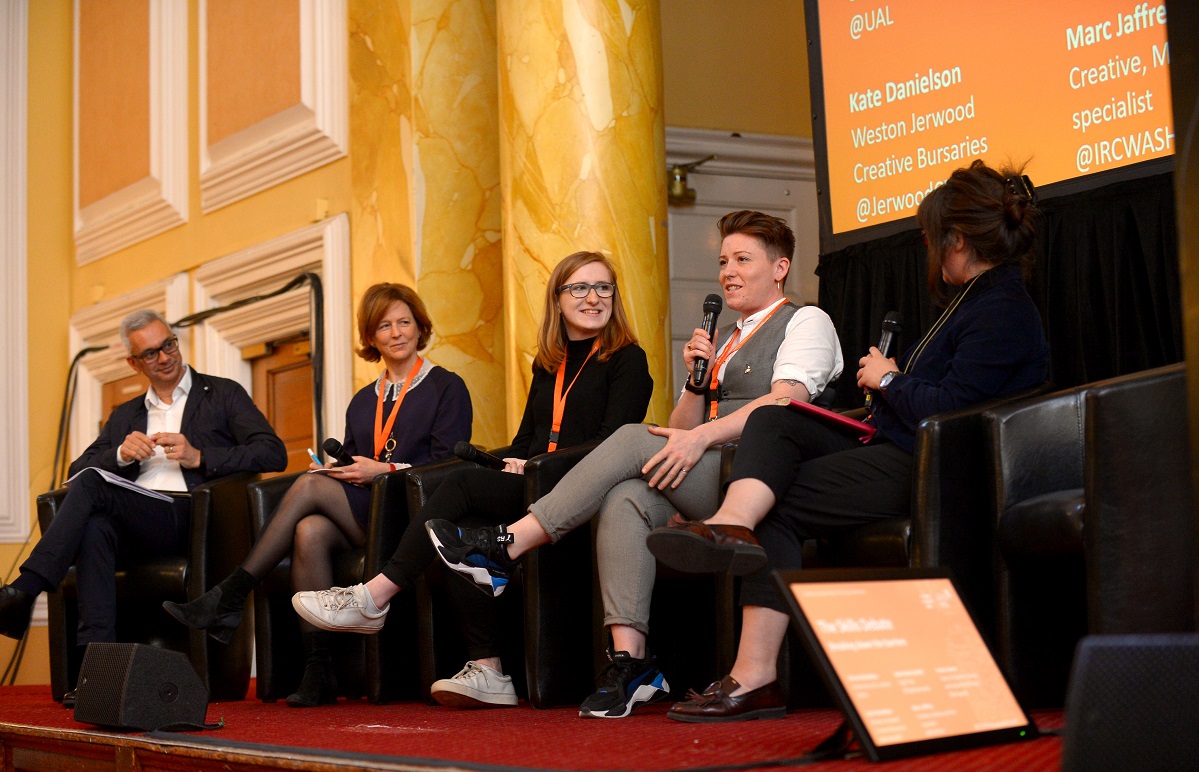
A panel discussion at the Creative and Cultural Skills Conference
Creative industries suffer from ‘Guardian reader syndrome’, says BEIS diversity lead
Conference delegates heard that unconscious bias in recruitment continues to be a serious problem.
A senior civil servant has accused the creative industries of engaging with diversity in a complacent manner dubbed “Guardian reader syndrome”.
Speaking at the Creative and Cultural Skills Conference in Cardiff this week, Emma Green, Head of Diversity at the Department for Business, Energy and Industrial Strategy, said:
“This isn’t my phrase, but it’s always a useful one to use. In the creative industries there is a lot of this thing called Guardian reader syndrome. Which is essentially: ‘I don’t see colour, I’ve got gay friends – this isn’t a problem’.
“Let me just be clear: unless you are actually colour blind, then you literally do see colour, so stop ignoring it. And just because you have got gay friends, it doesn’t mean anything about your understanding of diversity and inclusion, or being inclusive.”
Green added that cultural organisations should make a case for diversity not just because it is the right thing to do, but also by focusing on the “tangible, measurable benefit”.
“Of course we should do it because it is the right thing to do,” said Green. “But ultimately that doesn’t affect someone’s bottom line, and in a situation where funding is constantly being cut, and everyone is struggling for less and less resources, you need to say why this is the benefit for that organisation.”
She continued: “there are the obvious things that come back from all sorts of research: McKinsey research that says you will make better decisions if you have a more diverse group of people in the room… there is lots of stuff around retention of staff and the money that organisations save around recruitment. It’s about having the best talent in the room, all sorts of those really obvious things that have been researched for years.”
Unconscious bias
Speaking on the same panel, consultant Marc Jaffrey said he had overheard a recent conversation between two BBC producers on recruiting camera operators in which “the sheer density of the unconscious bias on who would possibly be a fit for the series was utterly shocking – and that’s how a lot of our industry works”.
Jaffrey said that “there are some really great individual [diversity] programmes, but they are largely atomised,” adding “I really wonder how many of the organisations are genuinely trying to question their culture and their value set, as opposed to maybe trying to make a more diverse version of the status quo.”
“I don’t want to belong to a pre-existing identity,” he continued. “I want to have voice and influence on a new version of that identity.”
‘Yell of protest’
Also speaking at the conference, Arts Council of Wales Chair Phil George said that “too many people are effectively denied the opportunity to enjoy, take part or work in the arts.”
He added: “The yell of protest and contempt for establishments and institutions that came from our post-industrial areas in the 2016 Brexit referendum has to be heeded. Arts Council, Government, local authorities, universities and broadcasters must respond – in the interests of social justice, of social cohesion, yes, but also because not to engage and offer creative opportunities would be a shocking waste of talent, of stories and of imagination.”
Join the Discussion
You must be logged in to post a comment.